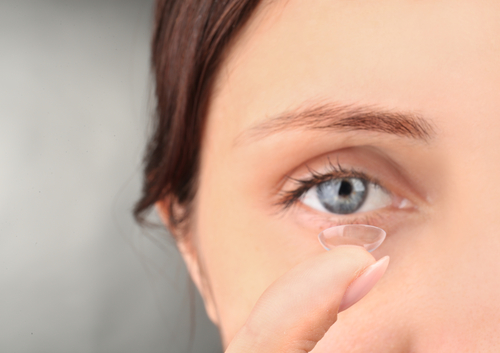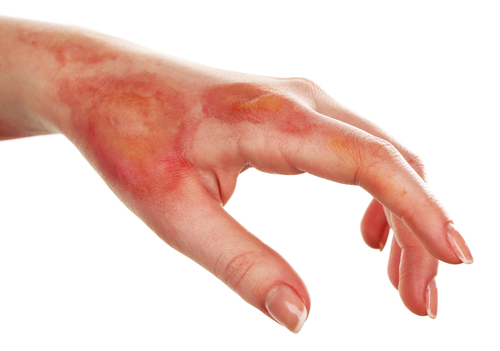Phenylketonuria - the most common disorder of amino acid metabolism. On average, phenylketonuria susceptible 1 of 8,000 people.
Underlying diseases is enzyme deficiency performing conversion of phenylalanine into tyrosine (tyrosine It prevents deposition of fat, reduces appetite, improves the function of the pituitary, thyroid, and adrenal glands).
symptoms of phenylketonuria
Phenylketonuria is manifested in the first year of life. The main symptoms of this age are:
- baby lethargy;
- lack of interest in the surroundings;
- sometimes irritability;
- anxiety;
- vomiting;
- disorders of muscle tone (hypotonia often);
- convulsions;
- symptoms of atopic dermatitis;
- there is a characteristic "mouse" smell of urine.
In later life for patients with phenylketonuria are characterized by delayed mental and speech development, often marked microcephaly.
If PKU is characterized by the following phenotypic characteristics: hypopigmentation of the skin, hair and iris. In some patients, one of the manifestations of the disease can be scleroderma.
Epileptic seizures occur in almost half of patients with phenylketonuria and in some cases may be the first sign of the disease.
Diagnostics
Diagnosis of suspected phenylketonuria based on the totality of genealogical data, results of clinical and biochemical examination:
- possible consanguineous marriages the parents of a sick child;
- similar pathology in their native cousins or siblings (brothers or sisters);
- convulsions, muscle tone;
- eczematous skin lesions;
- hypopigmentation of hair, skin and iris;
- a kind of "mouse" smell of urine;
- elevated levels of phenylalanine in the blood> 900 .mu.mol / l;
- presence in urine of phenyl, phenyllactic, phenylacetic acid;
- Felling positive sample.
Currently, the diagnosis of phenylketonuria developed and introduced molecular genetic methods to identify the gene defect.
Diagnosis in infants (screening)
Due to the fairly common phenylketonuria, severe clinical manifestations and the real possibility of prophylactic treatment, phenylketonuria among the first inherited metabolic disorder was included in the list of hereditary diseases, recommended by the World Health Organization for the early detection among newborns.
For early diagnosis of phenylketonuria in Russia carried out the mass examination of children in maternity wards with the determination of phenylalanine in the blood level.
Blood sampling is performed in newborns aged 4-5 days. Less frequently the object of study is the urine.
PKU treatment
The main method of treatment of phenylketonuria is diet therapy, limiting protein intake body and phenylalanine.
The main criterion for the adequacy of the diet in PKU is the phenylalanine levels in the blood, which should:
- early be 120-240 mmol / l;
- preschool children - not exceed 360 mol / l;
- schoolchildren - not exceed 480 mol / l;
- have children under school age is permissible increase of phenylalanine in the blood up to 600 umol / L.
The diet is constructed by a sharp limit Incoming protein products of animal or vegetable origin and therefore phenylalanine. To facilitate the calculations it is assumed that 1 g of the conditioned protein contains 50 mg phenylalanine.
In the treatment of phenylketonuria completely exclude foods rich in protein and phenylalanine are meat, fish, cheese, cottage cheese, eggs, beans and others. In the diet of patients include vegetables, fruits, juices, as well as special low-protein products - amilofeny.
For correction of protein food and amino acids make up the lack of special medical products prescribed for phenylketonuria:
- protein hydrolysates: nofelan (Poland), Aponte (USA), lofenolak (USA);
- a mixture of L-amino acid, phenylalanine deprived, but containing all of the other essential amino acids: phenyl stock (USA), tetrafen (Russia), P-AM universal (United Kingdom).
Despite the enrichment of the amino acid mixtures and protein hydrolysates and other mineral substances, patients with phenylketonuria need supplemental vitamins, in particular group B, mineral compounds, particularly those containing calcium and phosphorus, iron and microelements.
In recent years, suffering from phenylketonuria, the necessity of application of preparations carnitine (L-carnitine Elkar in the average daily dose of 10-20 mg / kg for 1-2 months. 3-4 courses per year) for the prevention of its failure.
Parallel treatment of phenylketonuria carried medication pathogenetic and symptomatic treatment nootropic drugs, drugs that improve vascular microcirculation, according to testimony - anticonvulsants.
Commonly used therapeutic exercises, massage and other common. Comprehensive rehabilitation of children with phenylketonuria provides special methods of pedagogical influence in the process of preparation for school and school education. Patients in need of help a speech therapist, a teacher, in some cases - pathologists.
Great controversy raises the question of the duration of diet therapy in the treatment of PKU. In recent years, most physicians accept the point of view of the need to perform long-term dietary recommendations. Examination of children who stopped to follow a diet at school age, and children continue to receive diet therapy, clearly showed a significantly higher level of intellectual development latest.
Patients with phenylketonuria older age, including adolescents, of course, possible to the gradual expansion of the diet due to improved tolerance to phenylalanine. Correction power is generally carried out by introducing into the diet of a limited number of cereals, milk and other natural products containing a relatively moderate amount phenylalanine. During the expansion of the diet conducted assessment of mental status of children, supervision electroencephalogram, Levels of phenylalanine in the blood.
At the age of 18-20 years is conducted to further expand the diet, but also in adulthood, patients are advised to abandon the high-protein foods of animal origin.
Particularly strict approach to diet therapy of girls suffering from phenylketonuria, and women of reproductive age. This kind of patients with phenylketonuria should be continued dietary treatment to ensure the birth of healthy offspring.
In recent years it developed a method for reducing blood levels of phenylalanine by receiving the formulation containing phenylalanine vegetable origin.
This article is based on an article from the book "Congenital and hereditary diseases" under the editorship of Professor P.V.Novikova, Moscow, 2007


